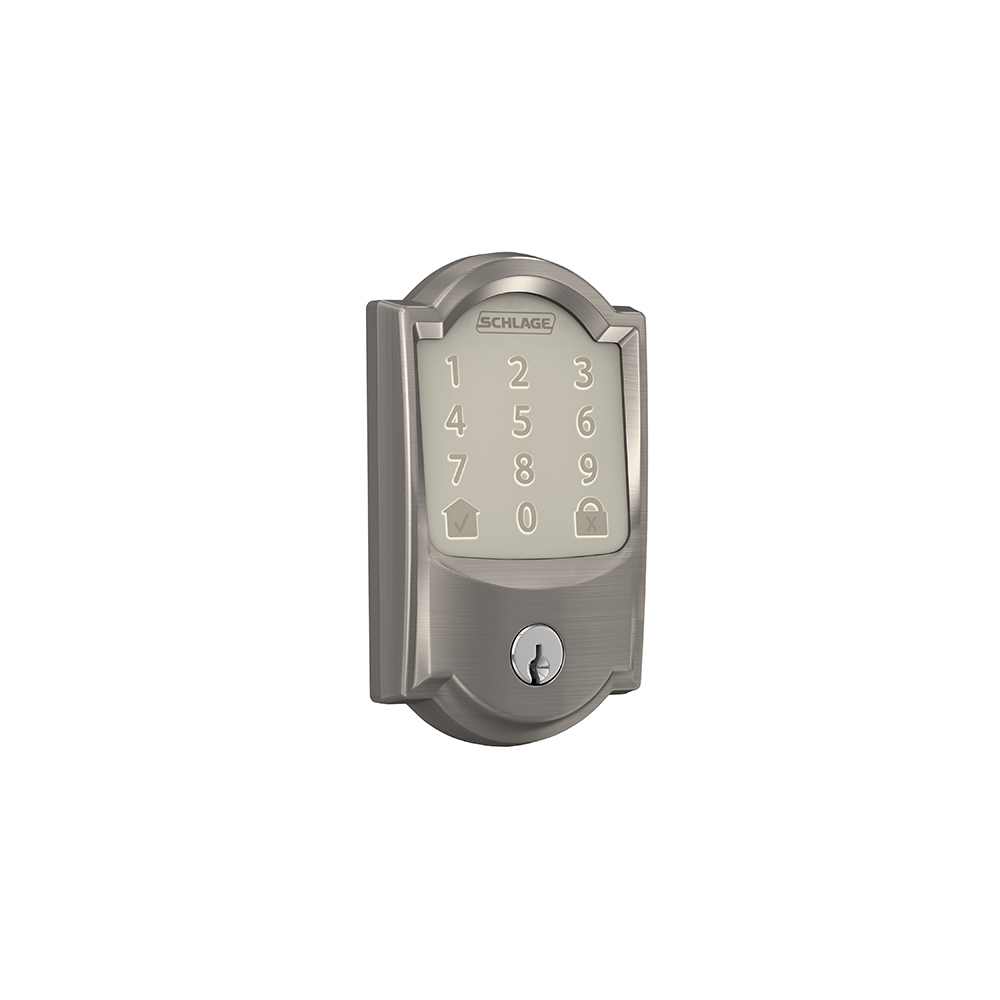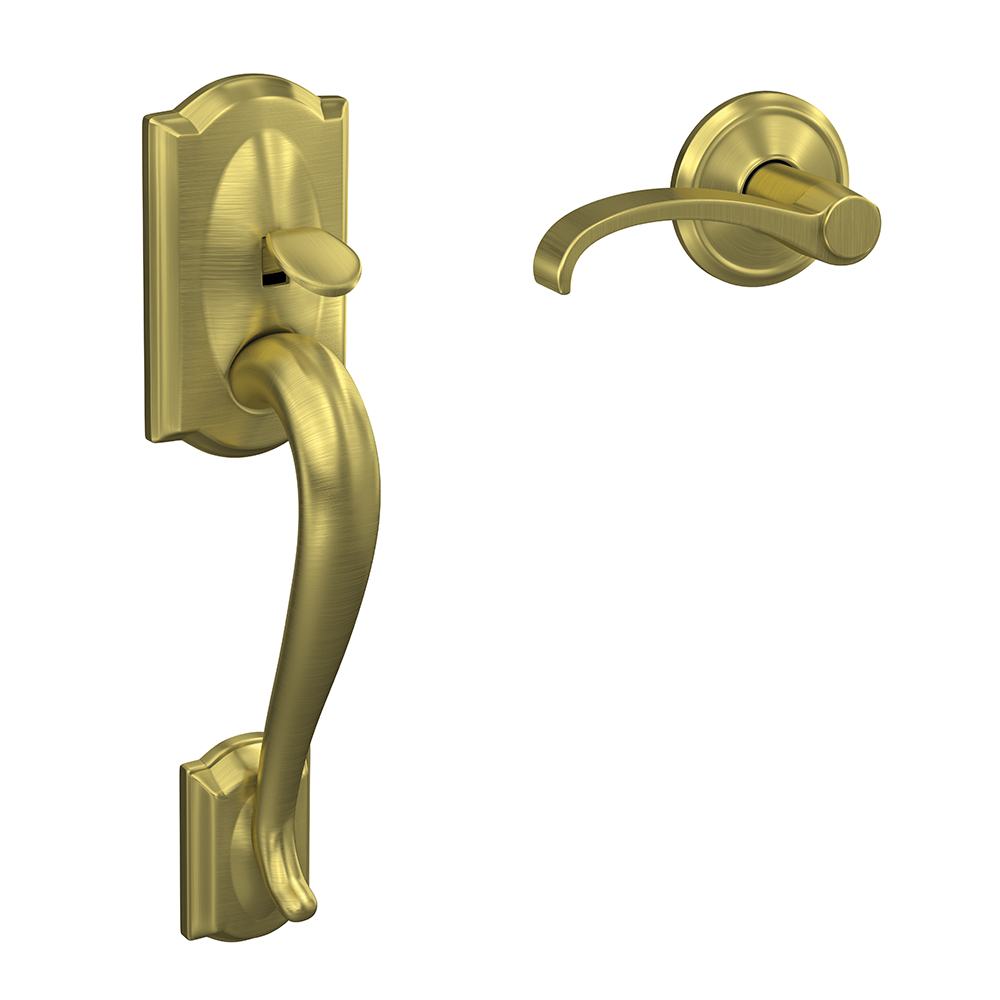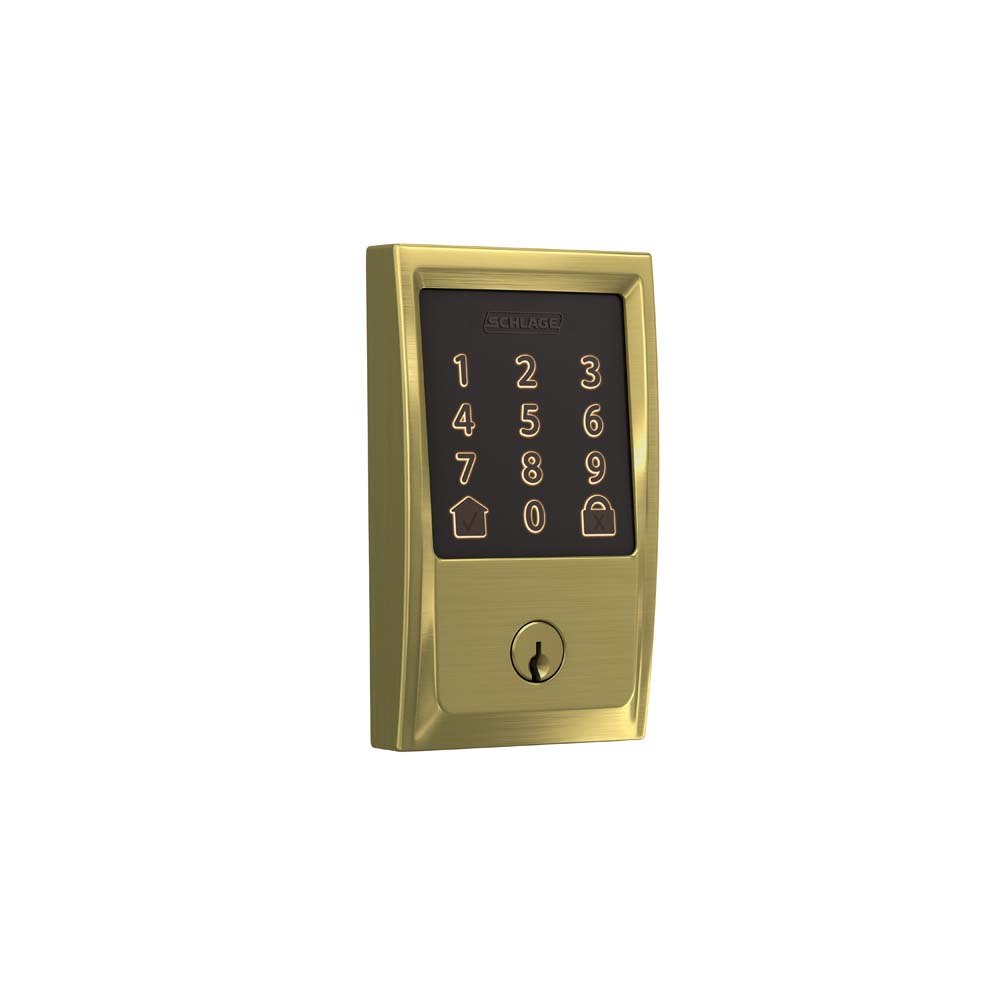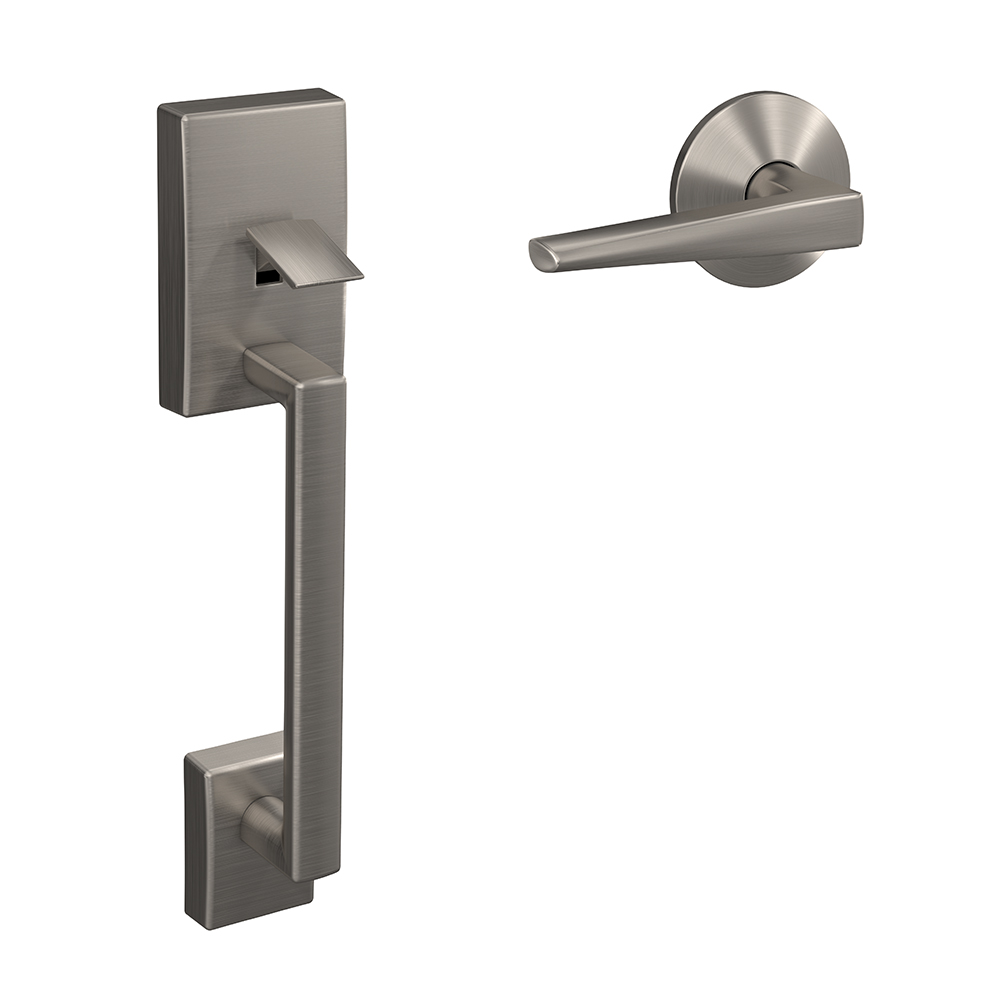Hanukkah in 2020: New traditions and non-Jewish friends.
Friday, December 4, 2020
One of the best ways to beat the disappointment of the “It’s just not the same!” syndrome is to release any expectations and embrace differences.
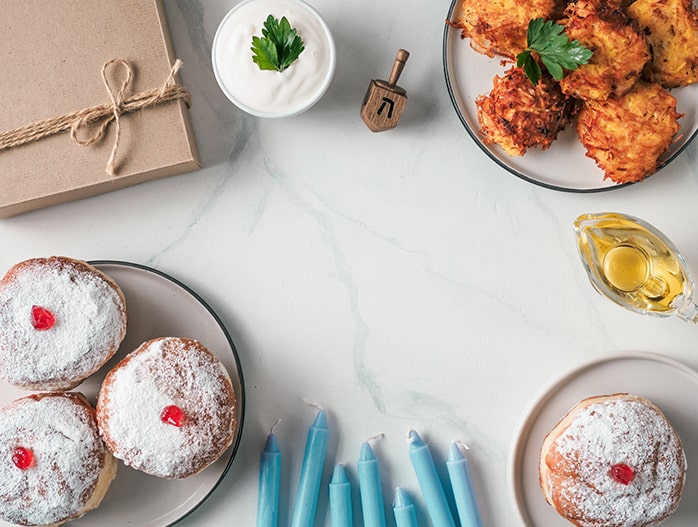
Traditionally, Hanukkah is celebrated at home with family. However, many of us are limiting our social circles and protecting older, at-risk family members this season. You might choose to invite a friend or two to help you celebrate, but what if they aren’t Jewish? We say this is the perfect opportunity to share your traditions with everyone. Education, empathy and compassion are always in season. Here are some tips we’ve found are helpful for hosting – and attending – a Hanukkah celebration.
The first tip is for everyone: No matter your faith, stay safe. Use the Centers for Disease Control and Prevention holiday guidelines for staying healthy during the coronavirus pandemic. You can also find more ideas for holiday hosting during quarantine on the Schlage blog. Consider taking your party online. But if you’re determined to get together in person, social distance when possible, don’t be afraid to ask guests to wear masks if it makes you more comfortable and wash your hands frequently, especially if you’re serving food. And let’s be honest. Your Hanukkah celebration will probably have plenty of delicious food.
Tips for hosting a 2020 Hanukkah celebration
- Try a new food tradition. We aren’t suggesting you get rid of latkes, sufganiyot or anything else with religious or personal meaning. We do, however, like the suggestion made by Lauren Manaker of POPSUGAR. Manaker no longer lives near her Jewish family, so she’s created new traditions with friends, including making a special Hanukkah martini rimmed with blue and white sugar. “Because my non-Jewish friends have embraced my traditions and observe the holiday with us, my daughter will grow up with memories of love and acceptance, and her non-Jewish friends will grow up with a strong knowledge of a different faith,” she writes. “It may not be exactly like what I did growing up, but it's just as special.”
- Embrace Hanukkah-inspired curb appeal. We both know Hanukkah is not Jewish Christmas. You can still have a wreath, if you want, though. This design showcased on Houzz shows how some sprigs of greenery with blue, white and silver accents are both seasonal and appropriate for your home.
- Go for the gold. We’ve mentioned them a few times – blue, white, silver – but that doesn’t mean you can only use those colors in your décor. Take a cue from gelt wrappers and add gold accents to your tablescape and other decorations. Extra glitz and shine will make any space feel more like a celebration.
- DIY some décor. Nearly all of us have extra time at home these days, and that means more opportunity for handmade gifts and décor. Better Homes & Gardens shows us how to make a modern marbled menorah from concrete. You could also make a gelt garland with some string, plastic gelt and hot glue like Design Megillah. And this photo menorah from The Modern Savvy might be especially perfect when you’re missing family.
- Communicate. Perhaps more than ever, this year it’s important to tell your guests what you expect from them. If you want them to wear masks or quarantine before coming to your home, tell them. And if you’re worried your guests will be anxious because of the difference in religion and traditions, you can give them a pre-event primer. Share a brief explanation of your history and traditions, either before the party starts or as part of the evening’s festivities.
Tips for non-Jewish guests at a Hanukkah celebration
- Learn the lingo. You’ll have a better idea of what’s going on and your host will appreciate your effort. A menorah is a candelabra while a hanukkiah is one with nine-branches, used specifically at home during Hanukkah. Gelt is Yiddish for money or, for many American Jews, chocolate coins. Latkes and sufganiyot are two common foods served during Hanukkah. Latkes are fried potato pancakes, and sufganiyot are jelly doughnuts. That everything is fried is significant, symbolic of the Miracle of the Oil.
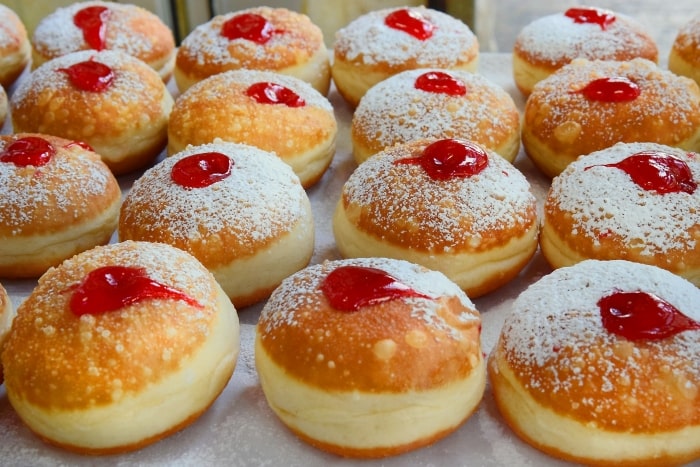
- Keep an open mind. As Mash-Up Americans writes, “Jews come in all shapes, sizes and colors. We are Persian, Spanish, Chinese, Arab, Ethiopian, and more. We are not all from Eastern Europe and we do not all think like Woody Allen.” There might or might not be a Hanukkah bush. People might or might not be wearing yarmulkes. Leave your preconceptions at the door.
- Hanukkah isn’t Jewish Christmas. But Christmas isn’t necessarily offensive, either. “Don’t get me wrong, though it seems like I am not full of Christmas cheer, I actually enjoy the Christmas season because, just as much as most of the world, I view it as a fun holiday full of parties, ugly sweaters and candy canes,” writes Rachel Kurland in Jewish Exponent. “So you can talk about Christmas around me, include me in Secret Santa office gift exchanges or wish me a happy holiday. It’s OK. Being overly sensitive about it is just as bad as being ignorant. I won’t spontaneously combust when I hear the word Christmas. That doesn’t offend me. But what does is assuming that Chanukah is some distant cousin of Christmas, when really they have no relation.”
- Don’t blow out the candles. Hanukkah is rooted in a miracle of a tiny amount of oil that should have lasted long enough to provide light for only one night. Instead, it lasted eight. Hence, Hanukkah is sometimes known as the Festival of Lights. It’s also why foods tend to be fried, like we mentioned early. The light and flame are important, so don’t blow out the candles of the menorah. (Our apologies for that super simple explanation of the miracle. Get a more complete account at History.com.)
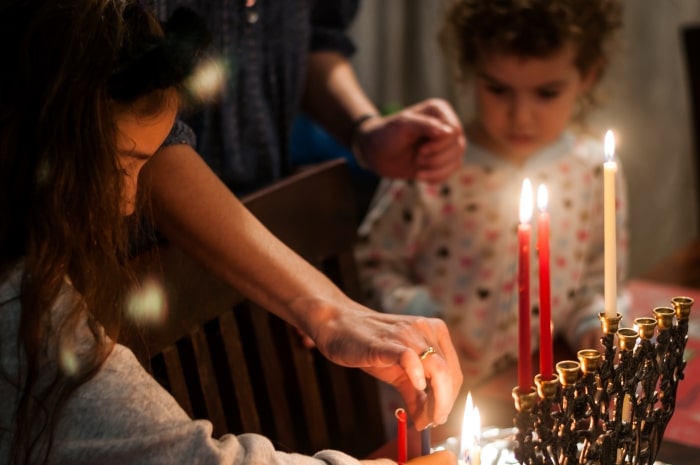
- Don’t expect gifts. American Hanukkah celebrations often include a small gift on each of the eight nights, but that practice can be unique from family to family. Giving gelt – or money – is the original custom and you might still see chocolate coins as gifts today. If you feel the need to bring a hostess gift, a bottle of wine, chocolate or board games would be appropriate. So would applesauce since it’s often served with latkes.
Including diverse friends and family in our traditions is the perfect way to build stronger connections and communities. Melissa Henriquez wrote for Kveller about her experience celebrating Hanukkah with her non-Jewish friends, “If only more of us could experience multicultural/interfaith experiences like ours, I truly think the world would be a better place. We have so much to learn from one another.
“People say, ‘Be the light you wish to see’—and in uncertain times like the ones we are in, it feels good to be able to be a source of light. And it feels even better to have friends who reflect that light, embrace it, and then emit it themselves in their willingness to learn and share with their own children.”
Find more hosting and holiday décor ideas for all year-long at the Schlage blog or follow us on Pinterest and Instagram.





